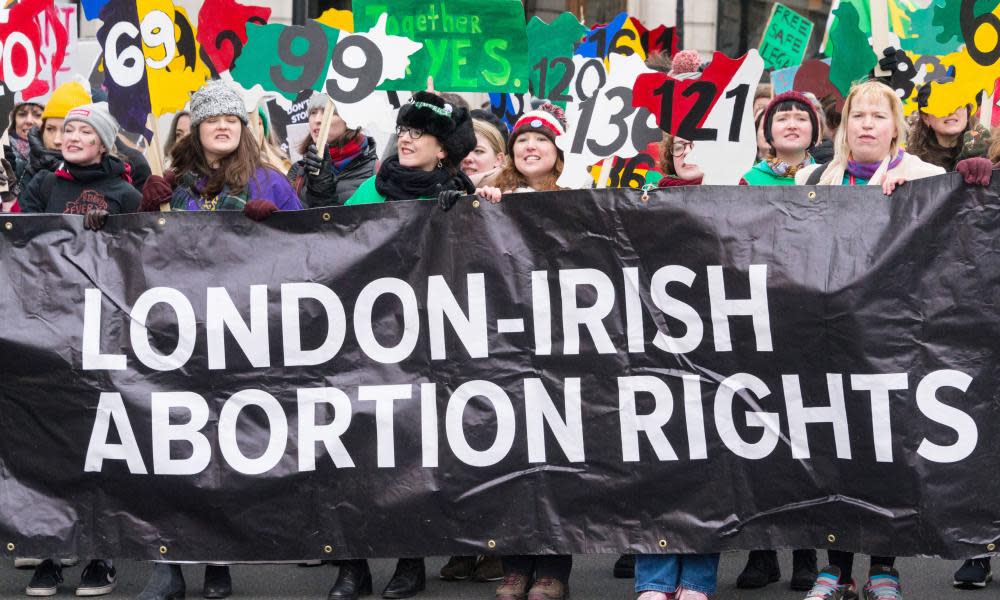Bill to give medical staff right to refuse role in abortions condemned

Pro-choice groups have condemned an attempt to create new laws that would allow doctors and nurses to refuse to take part in abortions on moral grounds.
A private bill going through the House of Lords that would expand rights of conscientious objection for healthcare professionals has been dismissed as unnecessary by abortion providers and campaigners.
Those in favour of the bill, sponsored by the Northern Irish crossbench peer Nuala O’Loan, insisted their aim was not to restrict abortion but to uphold freedom of belief and religion they claim is under threat in hospitals since a contentious supreme court ruling in 2014.
The conscientious objection (medical activities) bill passed its second reading earlier this year and is set for a line-by-line examination during its committee stage, which begins on Friday.
If it becomes law it would allow doctors, nurses, midwives or even pharmacists to refuse to not only take part in abortions but also from any indirect preparatory work, such as delegating colleagues or post-procedure care.
As well as abortion, the bill would also allow healthcare professionals to refuse to take part in withdrawing life support and certain kinds of research into embryos.
But the British Pregnancy Advisory Service (BPAS), the UK’s leading abortion provider, said that the proposed law would “enable a tiny number of people” to hinder women seeking abortions in the NHS.
Clare Murphy, BPAS’s director of external affairs, suggested that the expanded rights to conscientiously object would allow nurses to “refuse to bring a woman a glass of water because she has had an abortion”.
“There is already an extremely tolerant attitude towards those who do not wish to partake in providing certain aspects of healthcare,” she said. “Our feeling is that this bill is a solution in search of a problem, but one which could have profoundly negative consequences for women needing care.”
That warning was echoed by Kerry Abel, the chair of pro-choice advocates Abortion Rights. “The law currently already provides healthcare workers with these protections,” she insisted. “Extending this protection to tasks not directly related to the abortion would be to the detriment of women needing to end a pregnancy and the healthcare staff committed to providing that care.”
But Lady O’Loan, a former law lecturer and Northern Irish police ombudsman, said her bill was about upholding the right to freedom of belief, not about restricting access to abortion.
When introducing the bill in the House of Lords, she said health workers deserved the same rights that pacifist conscientious objectors were given during both world wars.
“If you make people do things which they believe are morally unacceptable then the integrity of them as a health service professional would be seriously impacted,” she said.
While she was personally opposed to abortion as a Catholic, she said that her bill did not seek special treatment as many in the NHS were against abortion for non-religious reasons.
The right to not take part in abortions is already written into the 1967 Abortion Act, but O’Loan said that a 2014 supreme court ruling meant these protections were now too narrowly defined.
“The section of the Abortion Act provides only very limited protection for a very limited number of people: those who are physically engaged in abortion. It would mean a midwife would have to delegate somebody to do something which she cannot in all conscience do.”
For many decades, hospitals had allowed doctors and nurses to absent themselves from even indirect involvement in abortions, which had worked “reasonably well”, she said.
But a test case by two Catholic midwives from Glasgow that reached Britain’s highest court four years ago had ended with a ruling which upended the previous arrangements.
Mary Doogan and Concepta Wood, two labour ward sisters at Glasgow’s Southern general hospital, had for decades been allowed to opt out entirely from abortions, including delegating colleagues to the procedure. But after a management reorganisation, they were told that arrangement had to end.
A lengthy legal tussle ended in 2014 with the supreme court ruling that the 1967 Act’s conscience clause only covered “hands-on” involvement in abortion and not the indirect delegation that the two midwives also refused to do.
Doogan said that while it had always been difficult for those like her who considered abortion to be “abhorrent” to work in obstetrics and gynaecology, the court’s judgment meant some people were choosing not to join the profession because of fears they would be forced to assist with abortions against their objections.
The 63-year-old, who has not returned to the NHS since her court case began, said that the health service desperately needed more midwives and doctors in obstetrics, pointing out the Royal College of Midwives estimates the NHS is short of about 3,500 midwives.
“If we get our consciences protected there might be the possibility of more people coming back in,” Doogan suggested.
The argument that expanding conscience protections would hamper access to abortion and undermine women’s rights was “stupid and hollow”, she said.
“That is such a load of rubbish – getting an abortion is easier than going to the dentist.”
Although O’Loan said her bill addressed a non-partisan issue, Labour has said it will oppose its passage through the House of Lords. The long-term fate of the legislation is uncertain, she admitted: the government has remained neutral in the Lords but not yet indicated to her if they would support it should it reach the Commons, although at least one Tory backbencher – Fiona Bruce – has said they would sponsor it.

 Yahoo News
Yahoo News 
